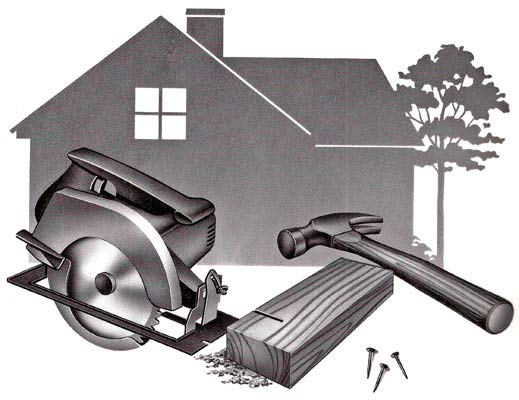
BLOG
Return to 'Buyer's Market' Still Years Away
Even though it's tough for buyers right now, I never say it's IMPOSSIBLE! Buyer who are patient and stay the course can find a home! Call me today! Free Homebuyers classes coming soon! Register Now! Laura Key 310.866.8422
It may be two to three more years before prospective home buyers get a break from escalating property prices and tight supply, according to experts speaking at a National Association of Real Estate Editors conference Wednesday.
That is the time frame for institutional speculators, who currently are dominating the market, to pull out of their investments and still make a profit, explained Bill Rayburn of the mortgage technology firm FNC. The market also will need to see the return of individual home buyers in order to normalize, he said, which will be propelled by employment gains.
Source: "Better Times for Home-Buyers Will Take a Few Years, Experts Say," Los Angeles Times (June 5, 2013)
Search for homes now...It's FREE!
California Homebuyers Need Homes!
If you can't see the video from the photo please click here: http://www.cbsnews.com/8301-18563_162-57587256/home-flipping-trend-returns-threatening-higher-prices/
Are you thinking of selling? I have buyers! Call me and let's reach your Real Estate Goal! Laura Key 310.866.8422
What to Expect At a Foreclosure Auction
Whether you are an investor that would like to get into buying foreclosed homes for your personal use! Call me today! Laura Key 310.866.8422
Whether you are an investor that would like to get into buying foreclosed homes for your personal use or to flip the property or if you are having your home foreclosed on, you should know what to expect at a foreclosure auction. Of course, the actual steps that will be taken can vary a bit from state to state and from house to house, but it’s good to know what you will be getting into when you go to a foreclosure auction. Foreclosure auctions can be exciting, even fun, but knowing what to expect will help you make the most of the experience, whether you are an investor or a homeowner that is trying to get your house back.
Before the Auction
You’ll likely find out about the foreclosure auction in a local newspaper and on the flier may be information to pre-qualify for bidding. This will allow you to put down a deposit so that the auctioneer knows that you are a serious bidder and can fulfill your bid if you are the winning bidder. Being pre-qualified just sort of speeds up the process so that you don’t have to mess around with the deposit on the day of the auction. During this time you should also do some research on the house by looking into any liens that may be against the property, how much the property is worth, how much it has appreciated in the last few years, as well as property values in the area. If the home looks as though it will need some repairs, you should consider this as well when trying to come up with how much you will be willing to pay for the house. Without this research, no amount of knowledge about what goes on at a foreclosure option will help you because you won’t know where to start when it comes to actually making a good bid.
What Happens At the Auction
The auction will typically start with the auctioneer reading legal notices as well as a legal description of the property. The auctioneer will usually then begin taking bids on the property. If the auctioneer has pre-qualified bidders the process is more streamlined, if not, each time a bid is made the auctioneer will then ask for the bidders deposit check, which is typically right around $5,000 for residential auctions. After each bid the auctioneer will attempt to solicit bids for higher amounts. Each auction is different, but the auction increments usually are set by the auctioneer and may be by $100, $500, or $1,000 per bid. The auctioneer will continue to solicit bids by this increment until it is clear that the highest bid has been reached. Then, the auctioneer will announce, “Going once, going twice, three times, sold!” indicating that the auction is over and the property has been sold to the highest bidder.
Once the bidding has ended a foreclosure deed and purchase papers will be drawn up and validated by the new owner or purchaser and the mortgage holder. A grace will likely be given to allow the purchaser to find financing or to come up with the funds to cover the full amount of the bid. This grace period is usually 30 days unless the purchaser and the mortgage holder agree to other terms. After the grace period a closing will take place, so that the new owner can formally take the title to the property.
What Happens, Now?
The purchaser can do what he or she intended to do with the property, whether it is to move into the home or to sell it for full market value. The money paid by the purchaser will be distributed in order of priority, first of which would be taxes. After taxes money will be paid to the mortgage, then the second and third mortgage if applicable. If there is still money after paying these debts, remaining money will be paid to lien holders and creditors. There is a very slim chance that there will be money left over after all of the debts are paid, if this is the case then the monies will be paid to the former home owner.
What about the Original Owner?
The original owner will often be at the auction so that they can bid on their home, and this is legal as long as they have the deposit required. If the owner of the home that has been foreclosed does bid on the home they must remember that the deposit is not refundable and the deposit assumes that they will be able to finance the home within the grace period. Owners must also remember that if they buy the property back old debts may merge and become reinstated such as second and third mortgages that became void when the first mortgage foreclosed on the property unless one has filed bankruptcy and is truly free and clear of these debts. Owners will often drum up the funds to make the deposit so that they can have another 30 days to try to save their home. Owners may or may not be successful in their attempts to save their home at a foreclosure auction.
As you can see, there are a lot of things that go into a foreclosure auction, but none of them are all that difficult to understand, but knowing about them makes the auction more enjoyable. The auction itself is not all that complicated, but it can be very fast paced. At some foreclosure auctions there are a lot of people, at others there are only a few because of the location or just the debts attached to the property, or even the state of the property. If you are serious about the property you should pay close attention when bidding starts so that you are sure that you can get your bid in when you feel it’s time so that you have the best chance of being the top bidder.
Call me for more info! Laura Key 310.866.8422
4 Steps To Real Estate Investing Success!
Real estate investing is always good and sometimes it's red hot. When it's hot dozens of real estate seminars begin rolling across the country and thousands of people spend thousands of dollars for investing education. One good resource is to have an Agent who is Investor friendly! Call me and let's chat! Laura Key 310.866.8422
Real estate investing is always good and sometimes it's red hot. When it's hot dozens of real estate seminars begin rolling across the country and thousands of people spend thousands of dollars for investing education.
It's startling to learn that of all those thousands of eager folks who attend these seminars only about 5% buy even one investment house. Why? The real estate gurus sell the "sizzle" and make profiting from real estate sound easy. The truth is that it's simple, but not easy.
Here's a quick plan that will enable anyone to begin building financial independence.
There are basically four steps to investing in single family homes:
1. Buy homes below full market value. Yes, people really do sell homes for less than the home's full value. The key is to understand that most home owners will only consider a purchase offer that is all cash and within 5% to 10% of their asking price.
The successful investor learns to find financially distressed home owners who have no choice but to sell for less than market value. They have lost their job or been suddenly transferred; they are divorcing; they been living beyond their income; the family has been overwhelmed with medical bills and, not uncommonly these days, their money has gone to support a drug habit.
Those are examples of motivated sellers. They have to sell and they will accept something other than a conventional, all cash offer.
2. How do you find motivated sellers? You work at it! Like any business it is important to develop a little marketing plan. One that is simple, yet very effective, is the one that was proven 75 years ago by the Fuller Brush company; door to door sales.
You are selling your skill as a home buyer to people who must sell. Your are there when they need you and you have the skill to help them solve at least part of their problem. With door to door prospecting you will learn more and buy more homes quicker than any other method. However, most people just won't walk door to door for three or four hours per week. OK, there are other ways.
You can watch public notices for the announcement of foreclosure sales. Meeting with a home owner right after they've received a notice that they are about to lose their home allows you to deal with a very motivated seller. Other public notices that provide buying opportunities include probate, divorce and bankruptcy. You can follow the Homes For Sale listings in your local newspaper or Internet site.
You can telephone the names found in these notices or, and this is the least time consuming, send a postcard expressing your interest in buying their property. It will produce buying opportunities, just not as many as personal contact.
3. After you've found a motivated seller you must understand how to frame offers that provide benefits for both you and for the home owner. A good real estate investor quickly learns that this is not a business of stealing property, but of solving problems in a way that benefits the seller.
The home owner is in a tight spot of some kind and you can save them from public embarrassment and, in most cases, give them at least a little cash to get a new start.
No investor can afford to leave cash in every deal. No one but Bill Gates has that much available money. You must use creative techniques like, leases, option and taking over mortgage payments. Little or no cash is needed for those deals. You can find plenty of reasonable priced educational material on those subjects in book stores or on EBay. The same education that seminars sell for thousands of dollars.
4. You make your profit when you buy! Never make a purchase until you've carefully determined exactly how you will get to your profit. If you hold it as a long term investment will the monthly rental income more than cover the monthly mortgage payment? Will you sell the deal to another investor for fast cash? Will you do some fix-up and sell the property for full value? Will you quickly trade it for a more desirable property? Have a plan before you buy.
There you have four steps that even a part-time investor can execute in three to four hours per week. What's the missing ingredient? Your determination and perseverance. If you will unfailingly follow the plan for a few months you will be well on your way to financial independence.
CALL ME TODAY TO HELP BUILD YOUR PORTFOLIO! Laura Key 310.866.8422




